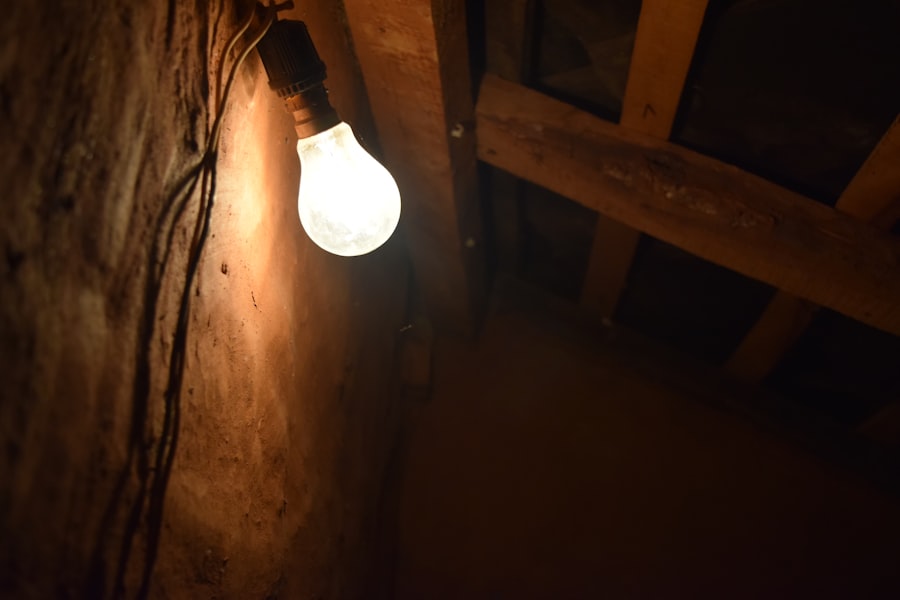Raising baby chickens can be a rewarding experience, but it’s important to keep them inside during their early stages of life. Baby chickens, also known as chicks, are delicate and vulnerable to various environmental factors. By keeping them inside, you can protect them from predators, extreme weather conditions, and potential diseases.
Additionally, keeping baby chickens inside allows you to closely monitor their behavior and health, ensuring that they are growing and developing properly. This also gives you the opportunity to provide them with the necessary warmth, food, and water they need to thrive. Overall, keeping baby chickens inside during their early stages is crucial for their safety and well-being.
Furthermore, keeping baby chickens inside provides them with a controlled environment that is free from potential hazards. Inside, you can regulate the temperature, humidity, and lighting to create an optimal living space for the chicks. This controlled environment helps to reduce stress on the chicks, allowing them to grow and develop without unnecessary challenges.
Additionally, keeping baby chickens inside allows you to establish a strong bond with them through regular interaction and handling. This can help the chicks become more comfortable around humans, making them easier to handle as they grow older. Overall, keeping baby chickens inside provides a safe and nurturing environment for them to thrive during their early stages of life.
Table of Contents
Key Takeaways
- Keeping baby chickens inside is important for their safety and protection from predators
- Baby chickens can be transitioned outside at around 6-8 weeks of age
- Outdoor temperature should be consistently above 65 degrees Fahrenheit before transitioning baby chickens outside
- Providing a safe outdoor environment includes predator-proofing, shelter, and access to fresh water and food
- Monitoring baby chickens’ behavior and health is crucial for their well-being and adjusting to outdoor life
Ideal Age for Transitioning Baby Chickens Outside
Reaching the Ideal Age
While it’s essential to keep baby chickens indoors during their early stages, there comes a time when they’re ready to venture out. The ideal age for transitioning baby chickens outside is typically around 6-8 weeks old. At this age, the chicks have developed their feathers and are better equipped to regulate their body temperature, making them more resilient to outdoor conditions.
Benefits of Outdoor Living
By this age, the chicks have grown stronger and are more capable of fending for themselves in an outdoor environment. Transitioning baby chickens outside at the ideal age allows them to acclimate to their new surroundings while still benefiting from the care and protection provided by their caretakers. This also enables them to start exploring and foraging for food in a natural setting, which helps them develop important skills and behaviors essential for their overall well-being.
Natural Sunlight and Growth
Being outdoors provides the chicks with access to natural sunlight, which is beneficial for their growth and development. Overall, transitioning baby chickens outside at the ideal age allows them to experience the benefits of outdoor living while still receiving the necessary care and support from their caretakers.
Considerations for Outdoor Temperature

When transitioning baby chickens outside, it’s important to consider the outdoor temperature and how it may impact the chicks. Baby chickens are sensitive to extreme temperatures, so it’s crucial to ensure that the outdoor environment is suitable for them. Ideally, the outdoor temperature should be mild and consistent, without drastic fluctuations that could stress or harm the chicks.
It’s important to monitor the weather forecast and choose a time for transitioning the chicks outside when the temperature is favorable. Additionally, providing shelter and shade in the outdoor environment can help protect the chicks from excessive heat or cold, ensuring their comfort and well-being. Furthermore, it’s important to consider the nighttime temperatures when transitioning baby chickens outside.
Even if the daytime temperature is suitable, nighttime temperatures can drop significantly, posing a risk to the chicks. Providing a warm and secure shelter for the chicks at night is essential to protect them from cold temperatures and potential predators. Additionally, using heat lamps or heating pads in the outdoor shelter can help maintain a comfortable temperature for the chicks during cooler nights.
Overall, considering the outdoor temperature and taking measures to ensure the comfort and safety of the baby chickens is crucial when transitioning them outside.
Providing a Safe Outdoor Environment for Baby Chickens
Creating a safe outdoor environment for baby chickens is essential for their well-being and development. When transitioning baby chickens outside, it’s important to provide them with a secure outdoor space that is free from potential hazards. This includes ensuring that the outdoor area is predator-proof, with sturdy fencing and secure enclosures to protect the chicks from predators such as cats, dogs, and birds of prey.
Additionally, removing any toxic plants or substances from the outdoor environment can help prevent accidental poisoning of the chicks. Providing a safe outdoor environment for baby chickens gives them the opportunity to explore and thrive in a natural setting without unnecessary risks. Furthermore, providing adequate shelter and protection from the elements is crucial when creating a safe outdoor environment for baby chickens.
This includes providing a well-ventilated coop or shelter that offers protection from rain, wind, and extreme temperatures. Additionally, providing access to clean water and nutritious food in the outdoor environment ensures that the chicks have everything they need to thrive. Creating a safe outdoor environment for baby chickens not only protects them from potential dangers but also allows them to experience the benefits of outdoor living in a secure and nurturing setting.
Monitoring Baby Chickens’ Behavior and Health
When transitioning baby chickens outside, it’s important to closely monitor their behavior and health to ensure that they are adjusting well to their new environment. Observing the chicks’ behavior can provide valuable insights into how they are adapting to outdoor living. Healthy and content chicks will be active, curious, and engaged in exploring their surroundings.
On the other hand, signs of distress or discomfort, such as lethargy or excessive huddling, may indicate that the chicks are struggling to adjust to the outdoor environment. Monitoring the chicks’ behavior allows caretakers to intervene if necessary and provide additional support to help them acclimate successfully. In addition to behavior, monitoring the health of baby chickens is crucial when transitioning them outside.
Regular health checks can help identify any signs of illness or injury early on, allowing for prompt intervention and treatment. This includes checking for any physical abnormalities, monitoring food and water intake, and observing droppings for any signs of digestive issues. Additionally, providing access to dust baths and natural materials in the outdoor environment can help prevent common health issues such as mites or lice.
Overall, monitoring baby chickens’ behavior and health when transitioning them outside is essential for ensuring their well-being and successful adaptation to their new surroundings.
Gradual Introduction to the Outdoors

Gradual Introduction to the Outdoors
One way to facilitate a gradual introduction is by starting with short supervised outings in a secure outdoor area before allowing full-time access to the outdoor environment. This allows the chicks to become familiar with their surroundings while still having the security of returning indoors if they feel overwhelmed or threatened.
Increasing Outdoor Time and Enrichment
Gradually increasing the duration of outdoor time as the chicks become more comfortable can help ease the transition and promote a positive outdoor experience for them. Furthermore, providing enrichment activities in the outdoor environment can help make the transition more enjoyable for baby chickens. This can include introducing natural materials such as branches, logs, or grass for pecking and scratching, as well as providing opportunities for dust bathing and foraging.
Benefits of Outdoor Living
These activities not only provide mental stimulation for the chicks but also encourage natural behaviors that are essential for their overall well-being. Overall, a gradual introduction to the outdoors allows baby chickens to adjust at their own pace while experiencing the benefits of outdoor living in a positive and enriching way.
When to Fully Transition Baby Chickens Outside
After a period of gradual introduction and acclimation, there comes a time when baby chickens are ready for full-time access to the outdoors. The decision to fully transition baby chickens outside should be based on their behavior, health, and readiness to thrive in an outdoor environment independently. Signs that indicate readiness for full transition include confident exploration of the outdoor space, active engagement in natural behaviors such as foraging and dust bathing, and overall good health and vitality.
Additionally, observing how the chicks interact with each other and their surroundings can provide valuable insights into their readiness for full-time outdoor living. Furthermore, ensuring that the outdoor environment is fully prepared with adequate shelter, food, water, and protection from potential hazards is essential before fully transitioning baby chickens outside. This includes ensuring that the outdoor shelter is secure and comfortable for overnight stays, providing access to clean water and nutritious food at all times, and removing any potential dangers from the outdoor area.
Once these preparations are in place and the baby chickens demonstrate readiness through their behavior and health, they can be fully transitioned outside with confidence in their ability to thrive in their new environment. In conclusion, raising baby chickens involves careful consideration of when and how to transition them outside. Keeping baby chickens inside during their early stages provides a safe and nurturing environment for them to grow and develop without unnecessary challenges.
The ideal age for transitioning baby chickens outside is typically around 6-8 weeks old when they have developed their feathers and are better equipped to regulate their body temperature. When transitioning baby chickens outside, it’s important to consider the outdoor temperature and provide a safe outdoor environment that is free from potential hazards. Monitoring baby chickens’ behavior and health during this transition is crucial for ensuring their well-being and successful adaptation to their new surroundings.
A gradual introduction to the outdoors allows baby chickens to acclimate at their own pace while experiencing the benefits of outdoor living in a positive and enriching way. Finally, when baby chickens demonstrate readiness through their behavior and health, they can be fully transitioned outside with confidence in their ability to thrive in their new environment.
If you’re wondering how long to keep baby chickens inside before letting them roam in a coop, you may also be interested in learning how to insulate a chicken coop to keep your feathered friends warm and safe during colder months. Check out this helpful article on how to insulate a chicken coop for tips and advice on creating a cozy and comfortable living space for your chickens.
FAQs
How long should baby chickens be kept inside?
Baby chickens should be kept inside a brooder for the first 6-8 weeks of their life. This provides them with the warmth, protection, and space they need to grow and develop properly.
What is a brooder?
A brooder is a heated, enclosed area where baby chickens are kept to provide them with the warmth and protection they need during their early weeks of life. It typically includes a heat source, such as a heat lamp or heating pad, as well as bedding, food, and water.
Why do baby chickens need to be kept inside for a certain period of time?
Baby chickens need to be kept inside for the first 6-8 weeks of their life to protect them from predators, provide them with the warmth they need, and ensure they have access to food and water. This helps them grow and develop properly before they are ready to be moved outside.
What happens if baby chickens are kept inside for too long?
Keeping baby chickens inside for too long can lead to overcrowding, stress, and potential health issues. It’s important to provide them with enough space, proper nutrition, and access to the outdoors once they are old enough to thrive outside of the brooder.
How can I prepare baby chickens for moving outside?
Before moving baby chickens outside, it’s important to gradually acclimate them to the outdoor environment by providing them with supervised outdoor time in a secure, predator-proof area. This helps them adjust to the temperature, sunlight, and natural surroundings before being fully transitioned outside.
Meet Walter, the feathered-friend fanatic of Florida! Nestled in the sunshine state, Walter struts through life with his feathered companions, clucking his way to happiness. With a coop that’s fancier than a five-star hotel, he’s the Don Juan of the chicken world. When he’s not teaching his hens to do the cha-cha, you’ll find him in a heated debate with his prized rooster, Sir Clucks-a-Lot. Walter’s poultry passion is no yolk; he’s the sunny-side-up guy you never knew you needed in your flock of friends!







